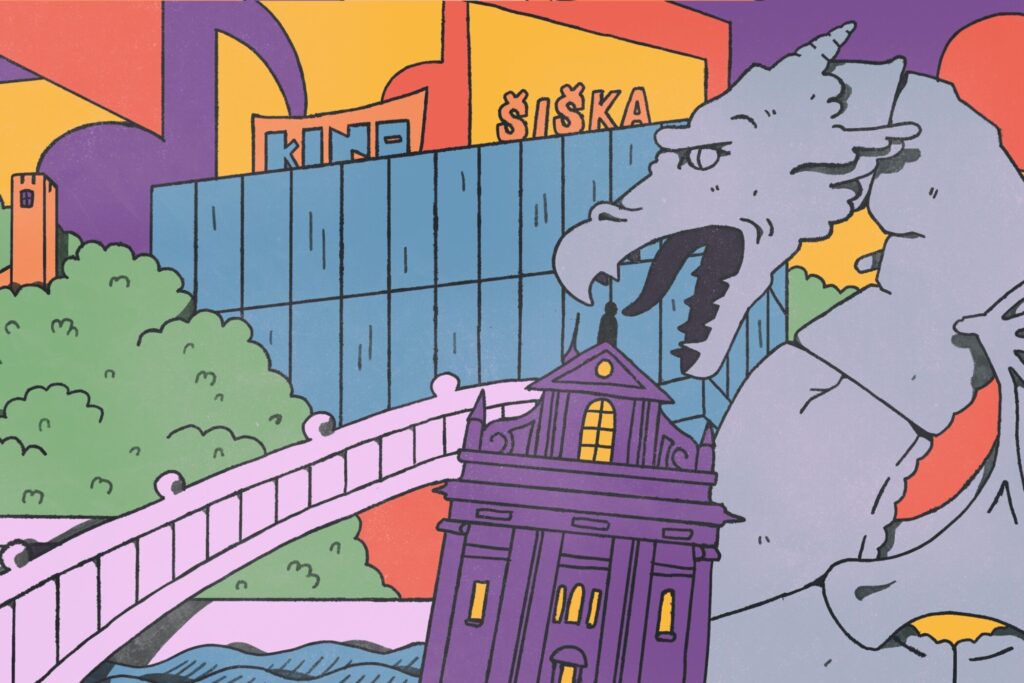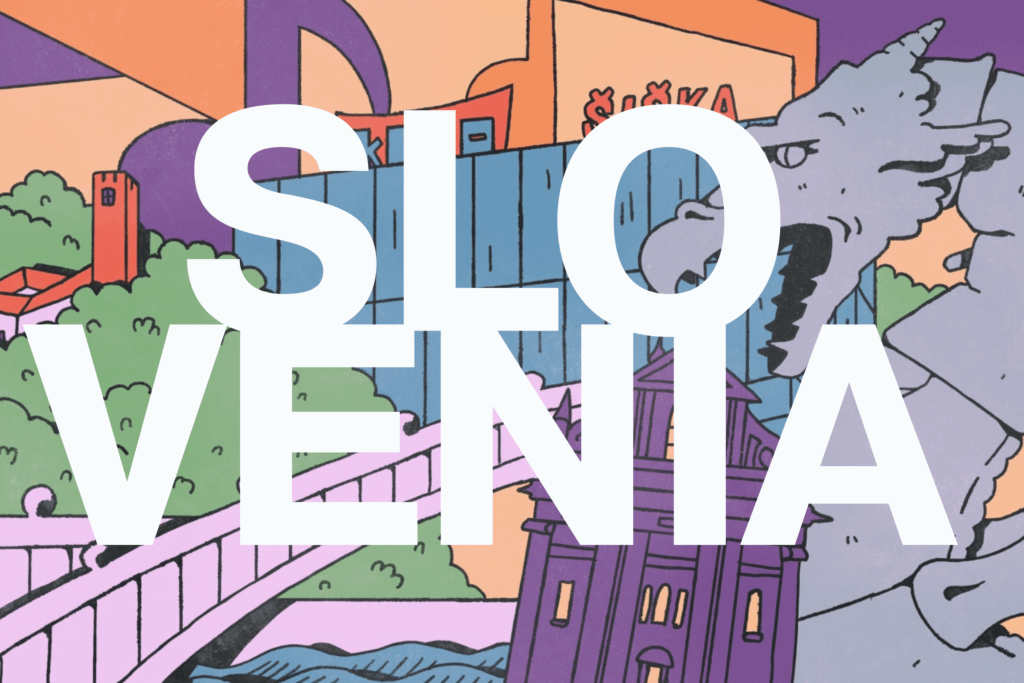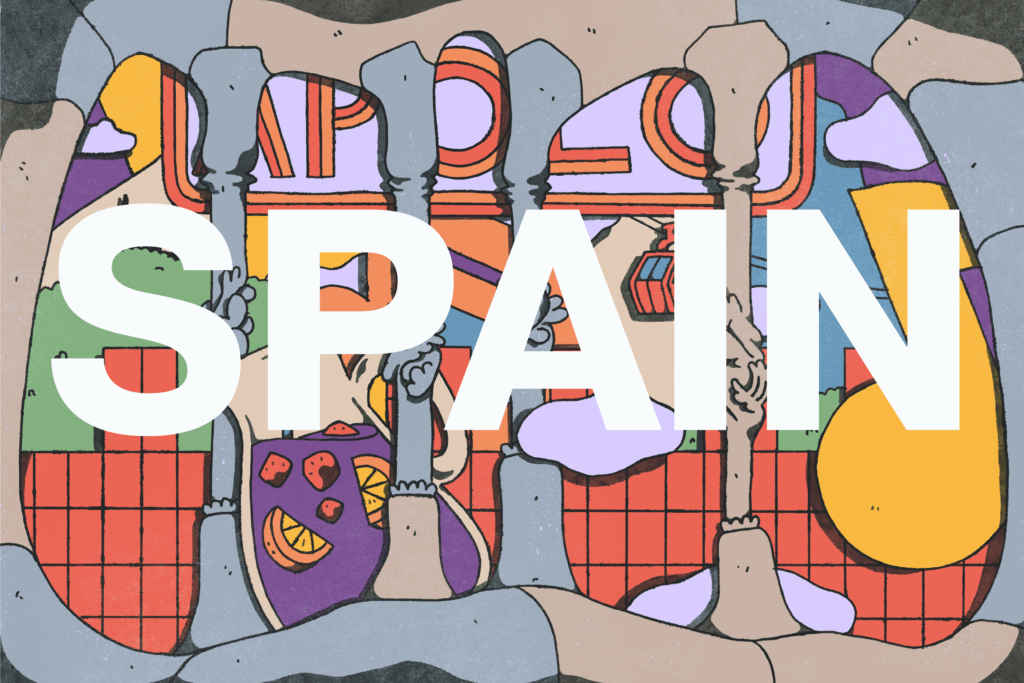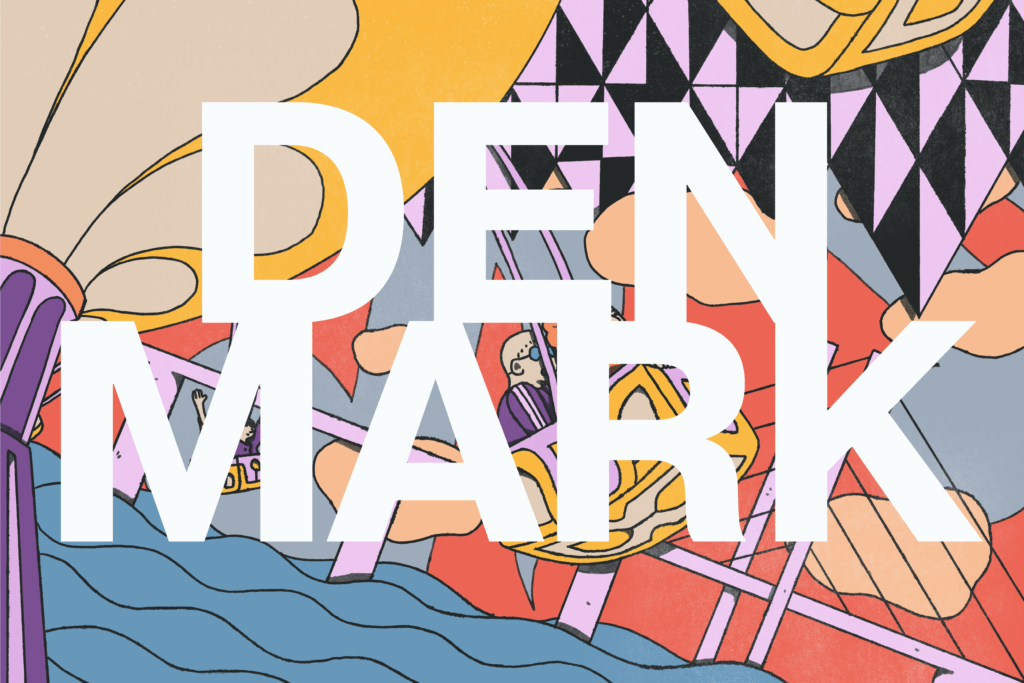A cinema in Šiška
For its size, the Slovenian capital has a big, beating heart when it comes to live music. Ljubljana is named after the Ljubljanica River that flows right through the city, and has about 280,000 inhabitants, on par with cities like Nantes in France or Verona in Italy. Arched bridges―the most famous of which is called Zmajski most or “the Dragon Bridge”―and a castle on a hill make the city an alluring destination. The free higher education is the cherry on top, converting some enamored visitors into expats.
North of the so-called “landscape park” that encompasses Tivoli park, Rožnik and Šiška Hill, a conglomerate of protected green oases in the west of the city, we find the district of Šiška. In 1961, a Slovenian modernist architect by the name of Božidar Gvardjančič built a cinema there. Throughout the 1970s it showed action and sci-fi movies, until it was closed due to decreased attendance and the breakup of Yugoslavia in the late 1980s. After opening for a second time in the mid-90s, the curtain of the 725-seat cinema fell definitively in 2001.
Today, the old cinema is still a place where the arts have a home. That is, until Kino Šiška Centre for Urban Culture (Kino means “cinema” in Slovenian) was temporarily closed earlier this year because of COVID-19.
Štream
“On the 5th of March, an Israeli indie-pop band, Lola Marsh, sold out our big room and on the 6th of March, Slovenia’s first coronavirus case was confirmed. Andrea Bocelli was scheduled to sing in the Stozice Arena on the 7th of March, but this was canceled. They later found out that Bocelli had COVID-19 at the time,” Matjaž, the lead programmer of Kino Šiška says.
“We had a concert planned on the 8th, but we weren’t feeling comfortable about it. The organizers wanted to make it happen regardless and even tried to find another venue to do the gig, but in the end they received a lot of pushback from people who thought it was irresponsible. We closed our doors on the 13th of March.”
Not being able to organize any events, Matjaž, his assistant Nik, and the rest of the team at Kino Šiška decided to move their concerts elsewhere―online. Committed to not grinding to a standstill, Kino Šiška has since organized more than 20 concerts on the web.
“Not being able to organize any events, Kino Šiška decided to move their concerts elsewhere―online.”
“As it looks like now, the situation will not be getting better anytime soon, so we’re looking to upgrade our streaming capabilities and even organizing hybrid concerts with a small portion of the audience in the venue [106 out of their normal capacity of 930 people] and the others watching and listening online.”
Kino Šiška’s streams are not your average concert registrations. In an effort to make the gigs lively and interactive, members of the audience are projected opposite the musicians, so their head bobbing or banging is visible in HD to those on stage. Mid-concert, there’s a short intermission where the host of the evening takes the stage and chats with audience members sitting in their kitchen, or lounging in bed.
Kino Šiška even teamed up with the Skopje Youth Culture Centre (Младински Културен Центар) in Macedonia, taking their streaming aspirations to another level. By merging streams from both capitals, the two have hosted multiple cross-border minifestivals, introducing audiences from each country to up-and-coming artists from the other.
By the end of July, Kino Šiška’s bartenders and security still weren’t serving the thirsty crowds, or throwing them out once they’ve had enough. Most of the technicians, who are paid per production, were in trouble as well. Although there were some maintenance jobs and repairs to do, quarantine simply took up too much time to keep everybody busy. That was until the Štream project came along, introducing a new kind of challenge to the techs: how do you organize exciting live shows in the ether?
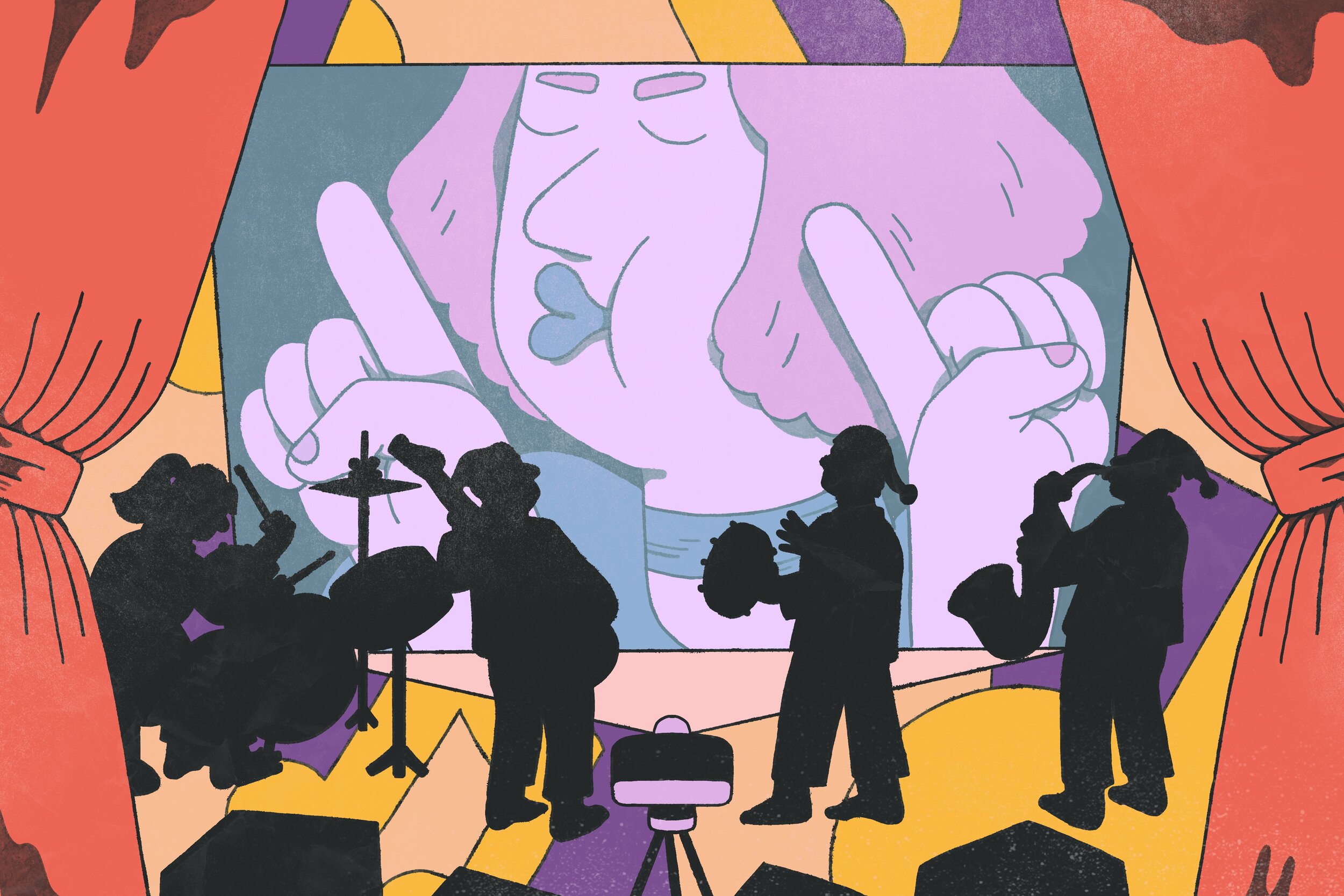
Which raises a broader question: why do bands tour at all?
“Nik, you are in a band. This is a question for you!” Matjaž tells his colleague, smiling.
Up for the challenge, Nik gives his two cents: “The main thing [about touring] is to be represented in all of those countries. If you do things right, your music and information gets out to the people there.” Indeed, there is no better business card for a band than a live performance. “Plus,” Nik adds, “you sell some tickets and some merch.”
With about two million inhabitants in total, Slovenia is a relatively small country. Even though its local music scene is bustling, the pool of possibilities is not bottomless. “We don’t want to have the same program every week,” Matjaž jokes. “Before the pandemic, only programming acts from Slovenia would hardly occur.” Now, those acts are in the limelight.
“For a concert to happen, everything has to come together perfectly.”
“People sometimes ask me, ‘why are you not inviting this or that band?’” he continues, “but a band might just have their schedule filled for the upcoming two years.” The fact that Slovenia isn’t always on the map when it comes to planning tours doesn’t make this any easier. For a concert to happen, Matjaž says, everything has to come together perfectly.
The pandemic inverted these logics entirely, opening up Kino Šiška’s doors to anybody with an internet connection. “Now we can organize performances of local bands and distribute them globally!”
Meet Pijammies
Matjaž and Nik recommended checking out “the catchy Slovenian funk-jazz power of Pijammies,” one of the bands that appeared on Štream.
“It is very hard to be positive about not being able to do the thing we all love the most—playing live—especially if this is also the main source of your income,” Pijammies explain. “All these things can make you feel scared and unmotivated for the future, but we tend to see it as an opportunity for us all to change and grow.”
During quarantine the band tried to stay active, finalizing their debut album (coming out September 18th) with their label SonicTribe which they signed to last year. “At some point we want to take our music abroad and see how it is received in other places. We hope to experience something new in unknown environments and see where this can take us. To test if it works equally well when we don’t have our friends cheering us on!”
“We hope to experience something new in unknown environments and see where this can take us.”
Very aware of the many cogs and gears that keep the music industry running, the band feels for all music professionals that have struggled because of the pandemic. “Event venues, sound engineers, technicians, roadies, managers, agents—we are all having a hard time.”
But despite all of that, the Slovenian art scene is teeming with life. “A lot of beautiful progressive people are trying to set the scene for upcoming but also established artists. There are so many great musicians and bands here,” the band members say.
Recently, they have noticed a trend toward more individualized and occasional music projects. “Coming from our experience, we feel like we can evolve so much more when working as a group. Combined with complete freedom in creating our music, we find this extremely rewarding. Music is about sharing. Not only between musicians, or musicians and listeners, but also between countries.”
Pijammies recommends:
There are quite a few bands that we love and look up to and that deserve much more appreciation: MoveMental, Moonlight Sky, Nas 3, Teo Collori, Momento Cigano, Futurski, Ecliptic, Repetitor to only name a few.


